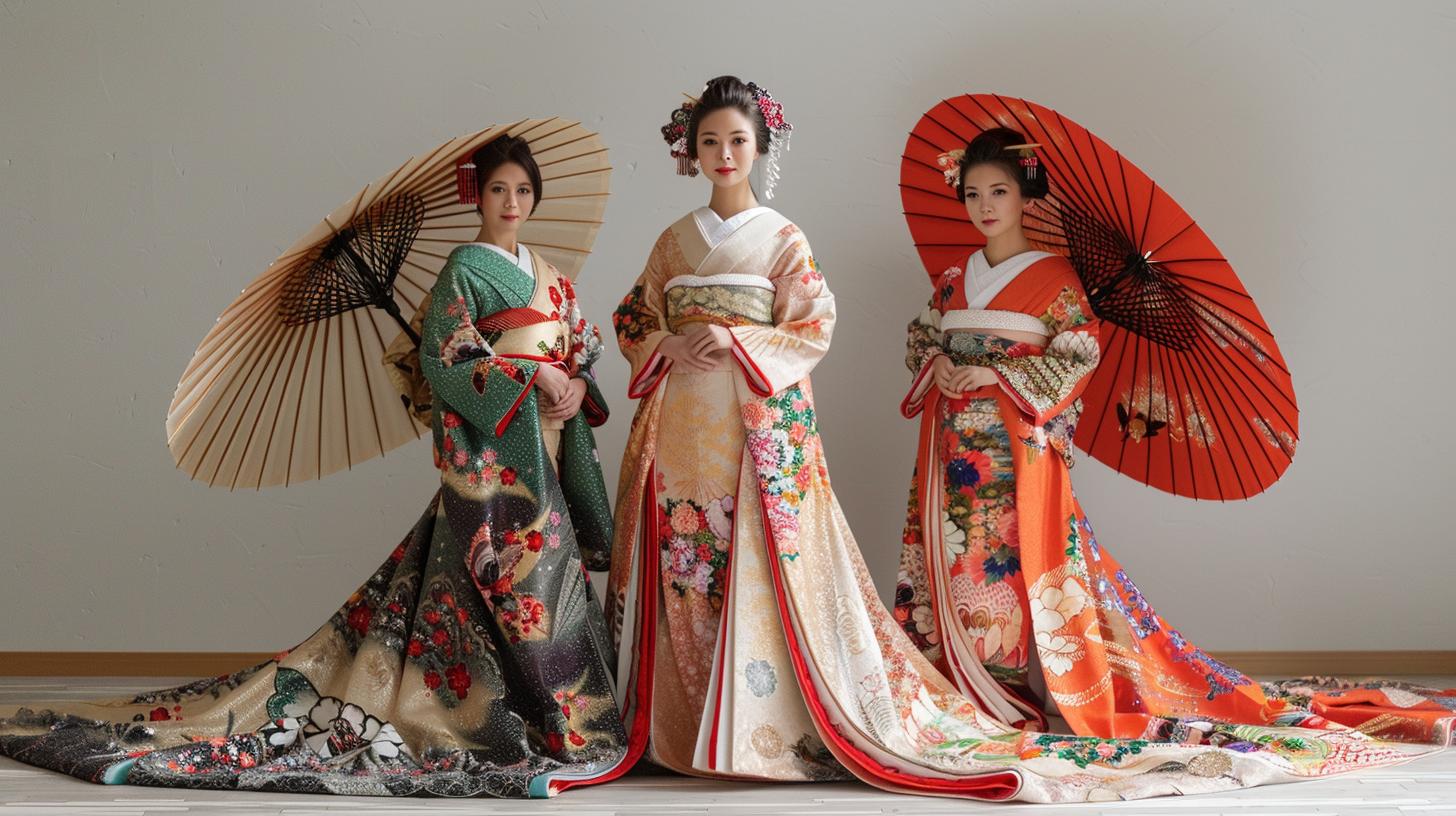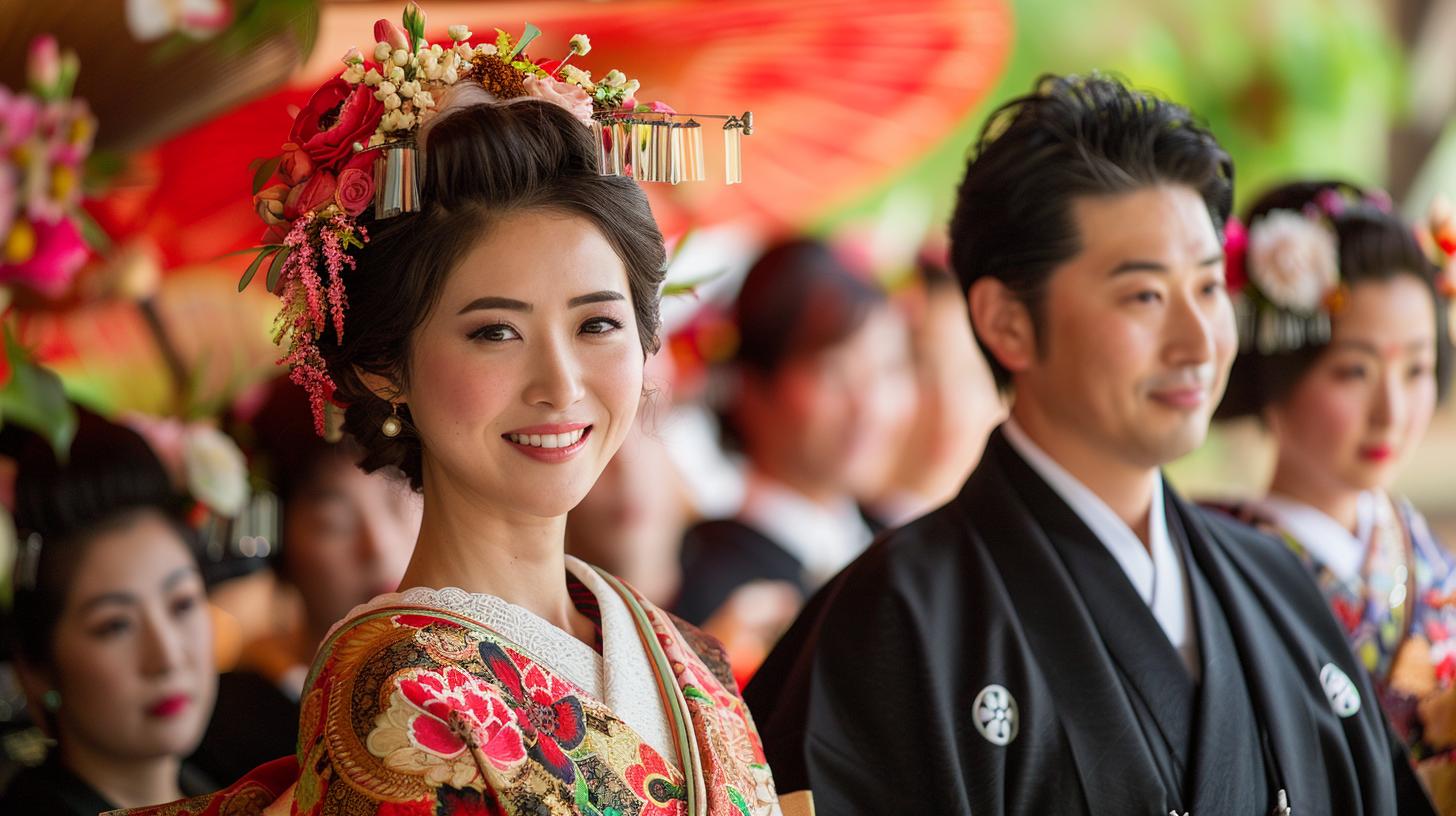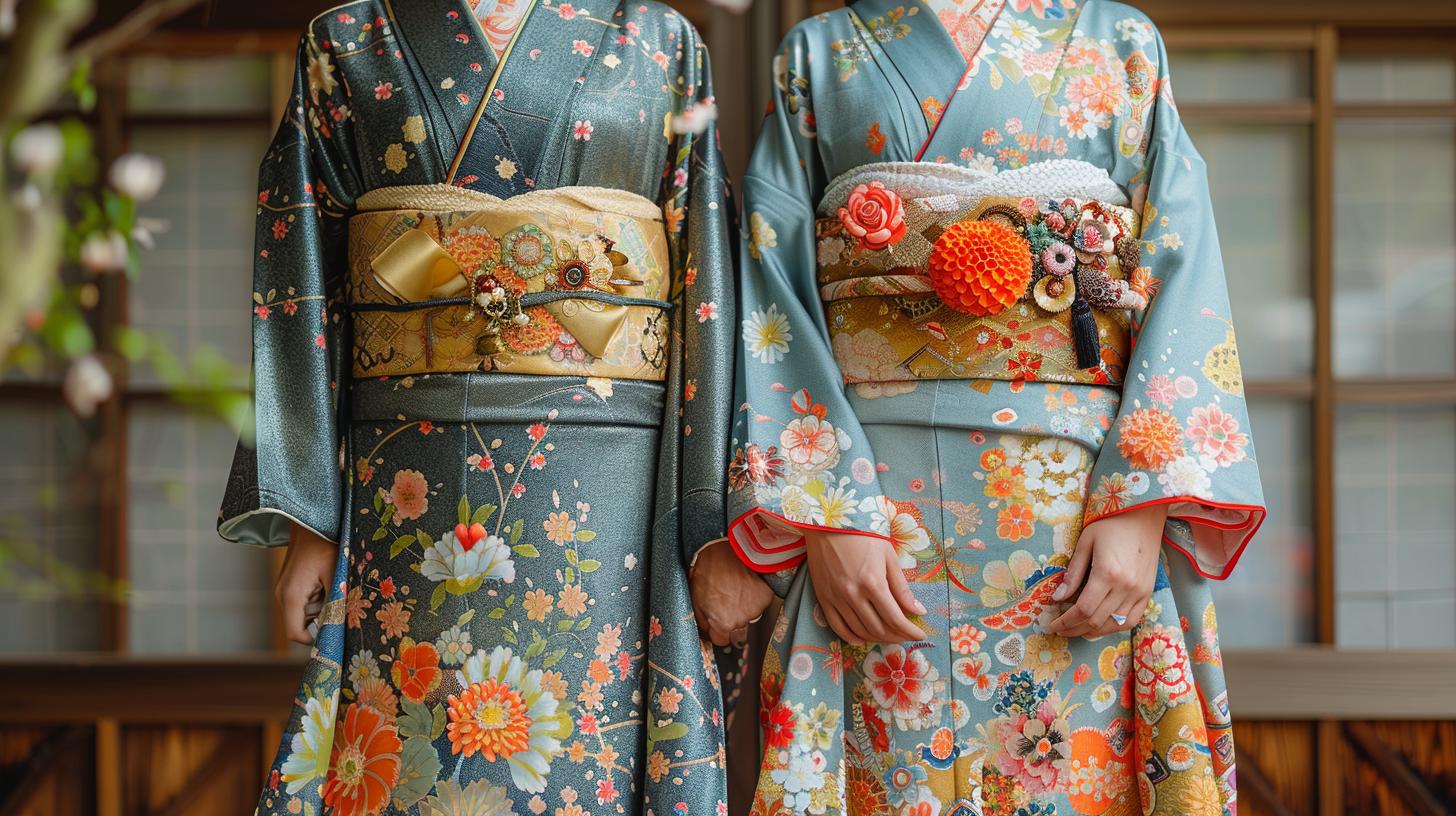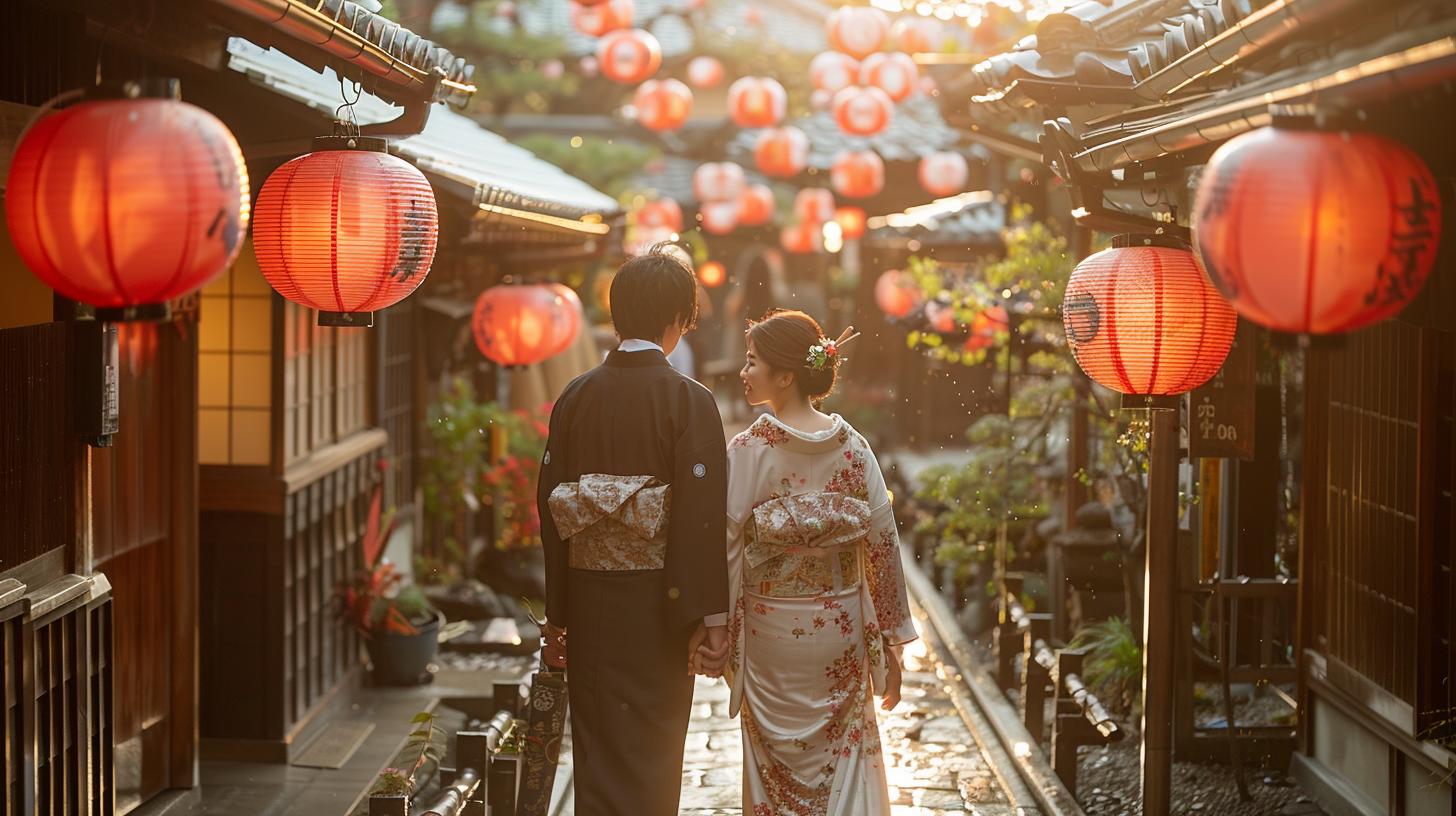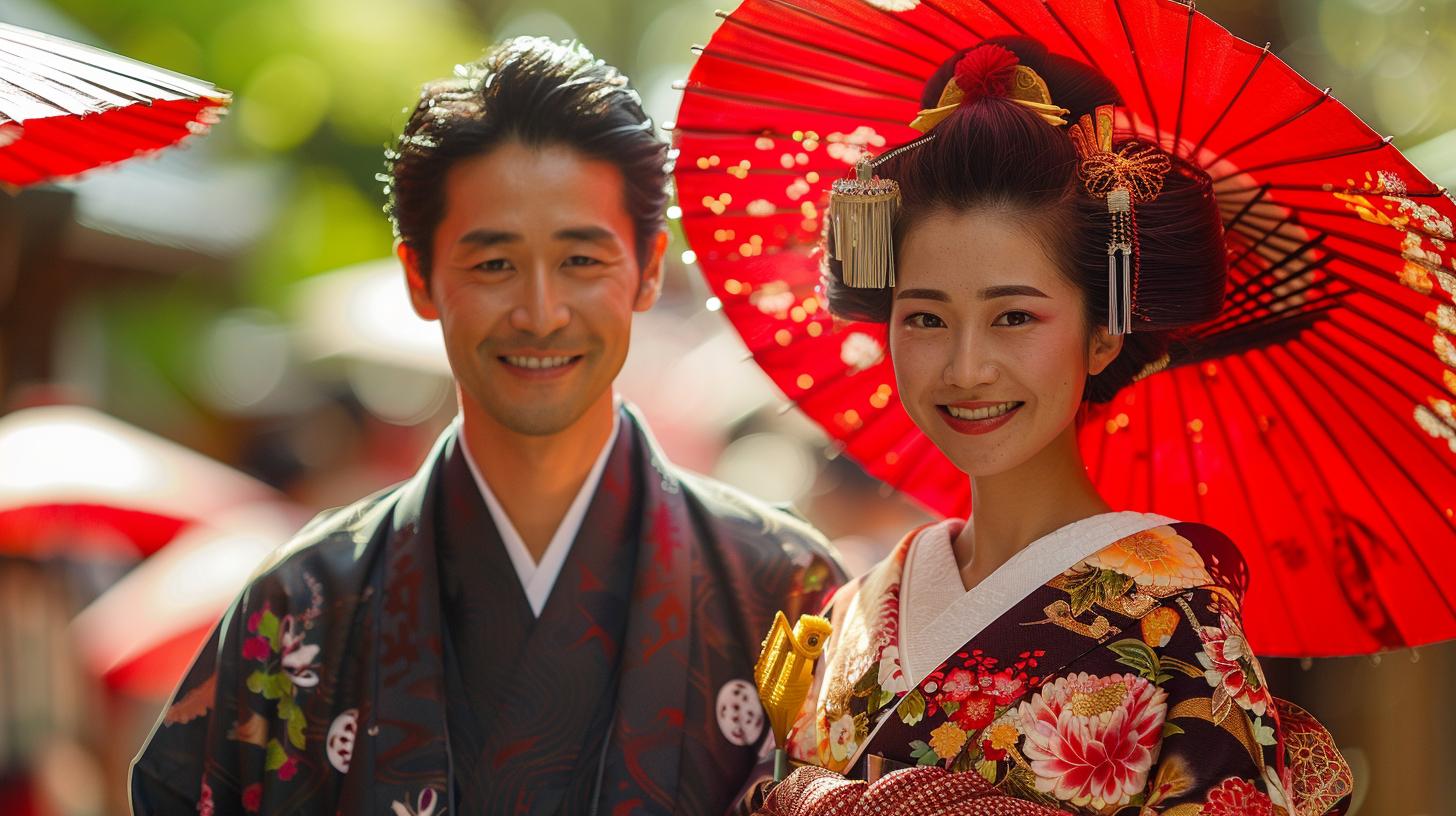At What Age Can You Get Married In Japan: Marriage Laws Explained
The minimum legal age for marriage in Japan has been a topic of debate and legislative changes recently. Currently, individuals can marry at 18 for men and 16 for women.
However, with parental permission, men can marry at 18, while women can marry at 16. There were efforts to raise the minimum age to 18 for both genders, that was implemented in 2022.
This change is crucial for ensuring that the age of marriage in Japan reflects contemporary societal values and promotes the well-being of young citizens. Moreover, understanding the legal requirements and implications of getting married in Japan is essential for both locals and foreigners.
The discussion surrounding the age gap discovery regarding marriage laws has brought attention to the complexities of Japanese society, particularly when considering the legal marriage age in Japan and the age of marriage in Japan with parental consent.
It is also important to explore how these laws interact with human rights, as the government strives to balance tradition with modern values.
Overview of Marriage Laws in Japan
In Japan, the laws surrounding marriage dictate the legal requirements and restrictions for individuals seeking to enter into matrimony. These laws encompass various aspects of marriage, including the minimum age at which individuals can legally marry and the current age requirements that must be met.
Understanding these marriage laws is essential for those considering tying the knot in Japan. For instance, the legal age of marriage in Japan has specific stipulations that vary based on gender and parental consent.
If you are a foreigner contemplating marriage, you may need the guidance of legal experts to navigate these laws effectively. Additionally, it is important to be aware of the rights watch organizations that monitor these legal frameworks to ensure human rights are upheld, especially concerning the issue of same sex marriage.
The Japan government is continuously reviewing its laws, and there are ongoing discussions about the implications of marriage laws on society.
Minimum Legal Age for Marriage in Japan
Japan sets a minimum legal age for marriage, which serves as the baseline requirement for individuals seeking to wed in the country. This age stipulation establishes the earliest age at which individuals can lawfully enter into a marriage contract, ensuring that both parties involved are of a certain minimum age deemed appropriate by the legal system.
The age of marriage in Japan is thus a significant consideration for those planning their future together. If you’re looking for the best way to approach this, you can obtain valuable information through various resources available online, including the Japan Times and BBC News.
Understanding how old do you have to be to marry in Japan is crucial, particularly for young couples and those contemplating their wedding ceremony. Additionally, the legal age in Japan for marriage varies based on whether parental consent is involved.
Alongside the minimum legal age for marriage, Japan also enforces specific age requirements that must be adhered to by individuals looking to get married. These current age requirements encompass additional criteria beyond the minimum legal age, setting out the conditions and stipulations that applicants must meet before they can be legally married.
For example, understanding how old do you have to be to marry in Japan is essential for planning your marriage. If you are a foreigner, you may also check out the specific regulations that apply to non-residents.
Moreover, the legal age of marriage in Japan with parental consent is a vital aspect to consider, particularly for young couples. In addition, it’s important to be aware of the legal marriage age in Japan when planning your wedding ceremony.
The current laws reflect a blend of tradition and modern influences that shape the marriageable age in the country.
Gender Disparities in Marriage Laws
Gender disparities in marriage laws in Japan are highlighted by the age discrepancy between men and women. Currently, under the Civil Code, men can marry at 18 while women can marry at 16 with parental consent.
This discrepancy has led to international criticism and raised concerns about legal obligations regarding gender equality. Both parties are affected by these laws, and the societal implications of this gap are profound.
The Japanese government has faced scrutiny from various international human rights organizations regarding this issue. It is essential to address these disparities to ensure that all individuals, regardless of gender, can enjoy equal rights in matters of marriage, including the marriage process.
The government has made statements regarding the need for reforms to align with international expectations and human rights standards.
Age Discrepancy Between Men and Women
The age gap between men and women in marriage laws reflects unequal treatment based on gender. Men being able to marry at 18 while women at 16 perpetuates traditional gender roles and hierarchies, potentially limiting women’s autonomy and opportunities.
The conversation surrounding the legal marriage age in Japan is critical in addressing these issues. Furthermore, efforts to allow same sex couples to marry are also part of the broader discussion regarding marriage laws.
The original intent behind these regulations may have been to protect women, but they often have the opposite effect, making it imperative for the Japanese government to take action. Advocacy groups, including human rights watch organizations, continue to push for changes to Japan’s civil code to reflect equality.
The legal obligations under international law to uphold non-discrimination and equal rights have highlighted the need for reform in Japan’s marriage legislation to address gender disparities.
Such reforms may include revisiting the legal age of marriage in Japan to ensure compliance with international standards. The Japanese government is under pressure to implement changes that reflect these evolving norms, especially as the United Nations emphasizes sustainable development goals that include gender equality.
As these discussions continue, many are asking what are the necessary steps to reform marriage laws in Japan. The Japanese civil code has been a focal point for these debates, emphasizing the need for societal adaptation.
Efforts to End Child Marriage in Japan
Efforts to combat child marriage in Japan are currently underway, with proposed revisions to the Civil Code being a key focus. These changes aim to set the minimum age for marriage at 18 for both men and women, aligning with international standards.
This is particularly significant in light of the ongoing discussions about marriageable age and its implications for young couples. The date you submit your application plays a crucial role in this process, marking the formal start of your journey toward wedding.
The government has recognized that lowering the legal marriage age without parental consent could have detrimental effects on young girls and boys alike, reinforcing the need for comprehensive marriage laws that protect both genders and align with global human rights standards.
Proposed Revisions to the Civil Code
The proposed revisions to the Civil Code in Japan seek to eliminate the current age disparity between men and women for marriage. By establishing 18 as the minimum age for both genders, Japan aims to address concerns related to gender equality and child welfare.
The changes will also include clarifications on the age of marriage in Japan with parental consent, ensuring that all couples are treated equitably. When getting married, you can expect a more streamlined process that respects the rights of all parties involved.
This is crucial in light of the increasing number of reports advocating for the rights of young women and girls, emphasizing that your marriage should be based on mutual respect and equality.
Additionally, it is important to ensure that non-Japanese citizens are aware of the legal requirements for marriage in Japan. For more information, you can visit this resource.
Expected Impact of New Legislation
The expected impact of the new legislation in Japan is significant, as it will contribute to ending child marriage and promoting the well-being of young individuals.
By ensuring that both men and women must be at least 18 years old to marry without parental consent, Japan is taking a crucial step towards safeguarding the rights of children and adolescents.
This shift in the legal marriage age in Japan will also encourage couples to focus on their personal and professional growth before entering into marriage. If you are planning to register your marriage, you can get legally married at your local city office, provided you have all the required documents, including your birth certificate and identification.
Additionally, remember to check with your embassy for any specific documentation or requirements that may apply to your situation. The marriage process in Japan is designed to ensure that all individuals are informed and prepared for this significant life event, reflecting the evolving attitudes towards marriage and family within Japanese society.
For foreigners looking to get married in Japan, there are specific requirements and documents you need to prepare, including an original birth certificate and the marriage certificate. It is essential to register your marriage at the city office, also known as the municipal office, where you will need to submit all documents required for the marriage.
The issuance fee for the marriage certificate is usually minimal, ensuring that the legal age to get married in Japan is accessible to all, including those who may be foreign residents.
If you are wondering, can foreigners get married in Japan? The answer is yes, and there are resources available to guide you through the process. You may need to consult the required documents list to ensure you have everything covered.
When preparing for your marriage, be aware of the additional documents you may need, such as a juri shōmeisho, which serves as proof of eligibility to marry. This document, along with your marriage application known as the kekkon todoke, is crucial for the registration process.
If you have questions about the legal age to marry in Japan or the requirements, you can consult your embassy or legal representatives who can provide guidance based on your specific situation.
Remember, you and your partner must understand the implications of marriage laws in Japan to ensure a smooth transition into this new chapter of your lives. Both women and men must be aware of their rights under the Japanese civil code when considering marriage.
In Japan, if you are a Japanese citizen marrying a foreigner, the process may include additional steps to recognize same sex marriage and ensure that all legal documents are in order.
The Japanese government has been proactive in addressing these issues by providing clear guidelines for both domestic and international couples wishing to marry.
Global Initiatives to Combat Child Marriage
In the global effort to combat child marriage, international commitments play a crucial role in setting guidelines and targets for countries to follow. Countries like Japan are part of this commitment to end child marriage by 2030, aligning with the United Nations Sustainable Development Goals.
For your city, the local city office can provide important information regarding marriage laws and the necessary documentation for residents, including those related to same sex marriage. The Japanese government has taken steps to support this initiative, ensuring that all individuals, regardless of their background, have access to the necessary resources for marriage.
You may also find that the requirements for getting married can vary depending on your city, including the documents you will need to provide.
International Commitments to End Child Marriage
- International agreements and initiatives focus on ending child marriage globally.
- UN’s Sustainable Development Goals highlight the urgency of this issue.
- Countries pledge to prioritize efforts to eradicate child marriage by 2030.
Recent Legal Reforms in Other Countries
Several countries have recently implemented legal reforms to address the issue of child marriage within their borders.
In Japan, there are two types of documents that are essential when getting married, particularly for Japanese citizens and foreigners. The koseki tōhon is a vital family register that contains all information recorded about a person’s family.
These reforms aim to raise the minimum age for marriage and protect vulnerable populations from the harmful effects of early unions. The requirement that individuals of a certain age cannot get married without proper documentation reinforces the need for comprehensive civil codes.
If you are a foreigner, understanding the impediment 婚姻要件具備証明書 or the certificate of no impediment is crucial to navigate the marriage process. You will also need to ensure that you have the kisai jiko and kisai jiko shōmeisho prepared as part of your application.
The country’s commitment to eliminating child marriage aligns with international objectives. For women and men alike, understanding the implications of marriage laws is vital. In Japan, the legalization of same sex marriage has sparked discussions on the rights of individuals seeking to register your marriage under the new framework.
You will need to familiarize yourself with the requirements for getting married, especially if you are a foreigner. The involvement of the Japan International Cooperation Agency (JICA) in this process is significant, as they work with various nations to promote sustainable development.
Japan’s Contribution to Development Assistance
Japan’s involvement in providing development assistance to countries facing child marriage challenges underscores its dedication to combating this issue on a global scale. Through initiatives and programs, Japan seeks to empower communities and support efforts to end child marriage.
You may need to understand the requirements for getting married in Japan, especially if you are a foreigner. The following documents you need include a valid passport and a certificate of no impediment 婚姻要件具備証明書, which can be obtained from your local city office.
It’s important to gather all necessary documents that can get you through the application process smoothly, including the marriage form from your local city office.
Involvement in Countries with High Child Marriage Rates
Japan’s partnerships with nations experiencing high child marriage rates demonstrate its commitment to addressing this harmful practice.
By collaborating with local organizations and governments, Japan aims to implement strategies that protect vulnerable populations and promote the rights of young girls. In Japan, there are specific documents you cannot get married without, such as the todoke kisai jiko, which outlines the necessary details for your marriage application.
Additionally, understanding the kisai jiko shōmeisho is vital for ensuring your application is complete. If you are looking to recognize same sex partnerships, be aware of the dōsei pātonāshippu seido, which is the framework for same sex marriage in Japan.
The Japanese civil code was amended to recognize same sex marriage, reflecting changing societal values, and ensuring that all couples have the right to register your marriage.
To register your marriage, you will need to present various documents, including the jiko shōmeisho and the 理証明書 kekkon todoke.
This certificate includes all the relevant information, and you will also have to pay an issuance fee for the required certificates. In the process of marriage from same sex partnership, you may encounter terms like kekkon todoke kisai and dōsei pātonāshippu seido, which refers to the sex partnership system in Japan.
The Japanese civil code was amended to recognize same sex marriage, reflecting changing societal values, and ensuring that all couples have the right to register your marriage.
For the certificate needed in your city, the fee for non-Japanese documents may vary, and you might require a translation fee for documents you need to submit.
The wedding ceremony in Japan can take many forms, including a western style wedding or a traditional Japanese ceremony. Regardless of the method, the day you tie the knot is significant, and it is essential to ensure that all necessary documentation is in order.
You will need to report your marriage to the municipal office where you registered your application. If there are any questions about the marriage process, frequently asked questions can help clarify your doubts.
Remember, the day you get married is not only a legal formality but a celebration of love and commitment.
Japan does not present significant impediments for foreigners wishing to get married, but understanding the process is crucial.
For example, the issuance fee approx can differ depending on your local city office. If there are any questions regarding the marriage application process, frequently asked questions can guide you, ensuring a smooth journey to your special day.
You will also want to ensure that all documents you need are submitted on time and that your local city office is informed about your marriage registration. Remember, if you have any concerns about the impediment 婚姻要件具備証明書 kon, it is wise to address them before proceeding with your application.
Engaging with the local municipal office can provide clarity on these matters, making the process of getting married in Japan a joyful experience.
Obtaining official documents in Japan often involves navigating various fees and regulations.
One of the primary costs associated with these processes is the fee for certificate issuance. This fee is determined by the specific type of document required and can vary depending on the municipal government office where the application is submitted.
It is crucial to understand the complete breakdown of costs, including any additional charges that may arise. When getting married in Japan, it is essential to know that you can get your marriage registered at all city offices.
To ensure a smooth process, you should also confirm the date you submit your application and any specific requirements that may apply based on your nationality.
When you apply for the certificate, you should also be aware of the potential translation fee for documents that are not in Japanese.
For those who need to submit documents in a language other than Japanese, the fee for the translation service can add to the overall expenses. It’s essential to check with the relevant authorities about the requirements for non-Japanese documents and the associated costs.
In Japan, you may need the appropriate documents to marry, including your birth certificate, your partner’s birth certificate, and other necessary documents translated into Japanese. If both parties are foreigners, understanding the requirements for obtaining these documents can simplify the process significantly.
Additionally, it is advisable to inquire about any fee for non residents that could apply to your application.
Moreover, if you are a foreigner navigating these processes, there may be a fee for non residents that applies to your situation.
Ensure that you have all necessary information before visiting the municipal government office. Understanding these fees ahead of time will help you avoid unexpected expenses and streamline the application process. Both parties are required to provide valid identification and submit the necessary paperwork to get legally married.
In addition to this, you should also check the specific documents required by the Japanese civil code, as it can dictate what is necessary to finalize your marriage. Furthermore, if you are required to pay a translation fee for any documents, being aware of the costs can assist in budgeting appropriately.
In summary, whether you are applying for non Japanese documents or seeking an official certificate, being informed about the various fees involved is vital. Always consult with the municipal government office to get the most accurate and up-to-date information regarding any fees or requirements.
When you register your marriage, be prepared to present all required documents, including your birth certificate, which must be translated into Japanese if it is in another language. Japan’s civil code was established to facilitate marriage for foreigners getting married in the country, and yes, foreigners can get married in Japan.
If you are looking for the best way to ensure everything is in order, you can obtain assistance from local services that specialize in helping foreigners navigate the process. Remember, you cannot get married in Japan without the proper documentation and compliance with local laws.
Also, check out local community resources that can provide guidance on what you may need for your application. Being aware of the fee for certificate issuance and other associated costs can greatly ease your experience.
.



